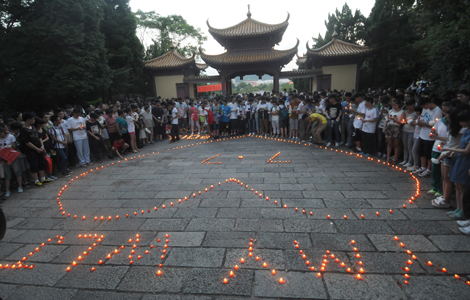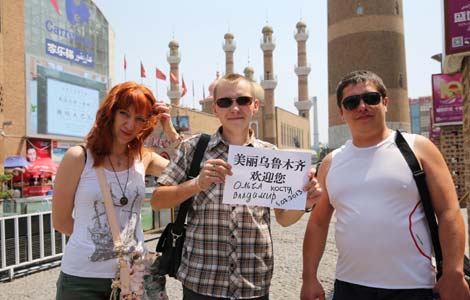
During the opening ceremony of the Forum on China-Africa Cooperation in Beijing last year, China promised more help for African countries in building agricultural technology centers, training medical and other personnel, and digging wells to expand access to clean water.
The top Chinese investments in Africa by sector are: oil and natural gas (19 percent); rail and road (18.55 percent); other mining (10 percent); hydroelectric dams (9.2 percent); iron ore (7.4 percent); copper (6.9 percent); civil construction (5.9 percent); manufacturing (3.7 percent); uranium (2.3 percent); airports (2 percent); aid (1.8 percent); port construction (1.6 percent); gold (0.7 percent); water (0.5 percent); and others (11 percent), according to the China Business Review and data based on an estimate of high-level Chinese investment, loan and aid deals with Africa.
The African countries in which China invested most in 2012, according to data by The Heritage Foundation, were: Nigeria ($15.4 billion), Algeria ($9.2 billion), South Africa ($6.6 billion), the Democratic Republic of the Congo ($6.5 billion), Niger ($5.2 billion), Egypt ($3.2 billion), Libya ($2.6 billion), Zambia ($2.4 billion), Sudan ($2.2 billion) and Ethiopia ($1.9 billion).
In 2012, a number of deals were also signed between China and African nations, according to Ventures Africa.
In Nigeria, $1 billion will be funneled toward a Sinohydro-China National Electric Equipment Corporation project aimed at stabilizing the country's power supply.
Chinese energy firm Haohua Energy International has invested $100 million in Coal of Africa to acquire a 23.6 stake in the South African mining company.
Ghabbour Auto, the largest car importer and distributor in the Middle East and North Africa, recently opened a new plant in Egypt to assemble cars produced by Geely Automobile Holding. Annual production capacity could amount to 70,000 cars, up from an earlier rate of 30,000 cars.
The China Banking Regulatory Commission approved the establishment in Beijing of a representative office of Ecobank Transnational Incorporated, a pan-African bank. The office is expected to strengthen cooperation between Ecobank and Chinese financial authorities, as well as enable more bilateral trade and investment for African countries.
According to The Heritage Foundation, a US think tank, major Chinese enterprises that were particularly active in Africa during 2005-2008 included:
China National Offshore Oil Corporation and China Railways Construction in Nigeria;
China Petroleum & Chemical Corporation (Sinopec) in Angola;
China National Machinery Industry Corp in Gabon;
China International Trust and Investment Corporation and Aluminum Corporation of China Ltd in Egypt;
China Nonferrous Metals Company Ltd in Zambia;
Minsheng Bank in South Africa;
Sinosteel in Zimbabwe;
China National Petroleum Corporation in Niger and Chad;
China Metallurgical and Sinohydro in the Democratic Republic of the Congo.
In 2012, China International Trust and Investment Corporation completed a $3.5 billion project spanning 5,000 hectares to house about 500,000 people in a satellite city on the outskirts of Angola's capital city of Luanda.
China has established six special economic zones in Africa as of 2011. They include:
Chambishi in Zambia, focusing on copper and copper related industries, as well as a subzone in Lusaka, Zambia, focusing on garments, food, appliances, tobacco and electronics;
Jinfei in Mauritius, with investments in textiles, garments, machinery and high-tech manufacturing, as well as trade, tourism and finance;
Oriental in Ethiopia, investing in electrical machinery, construction materials, steel and metallurgy;
Ogun in Nigeria, with interests in construction materials, ceramics, ironware, furniture, wood processing, medicine and computers;
Lekki in Nigeria, for transport equipment, textiles, home appliances and telecommunications industry;
Suez in Egypt, for petroleum equipment, electrical appliances, textiles and automobiles.
China Daily
( China Daily Africa Weekly 06/14/2013 page7)








